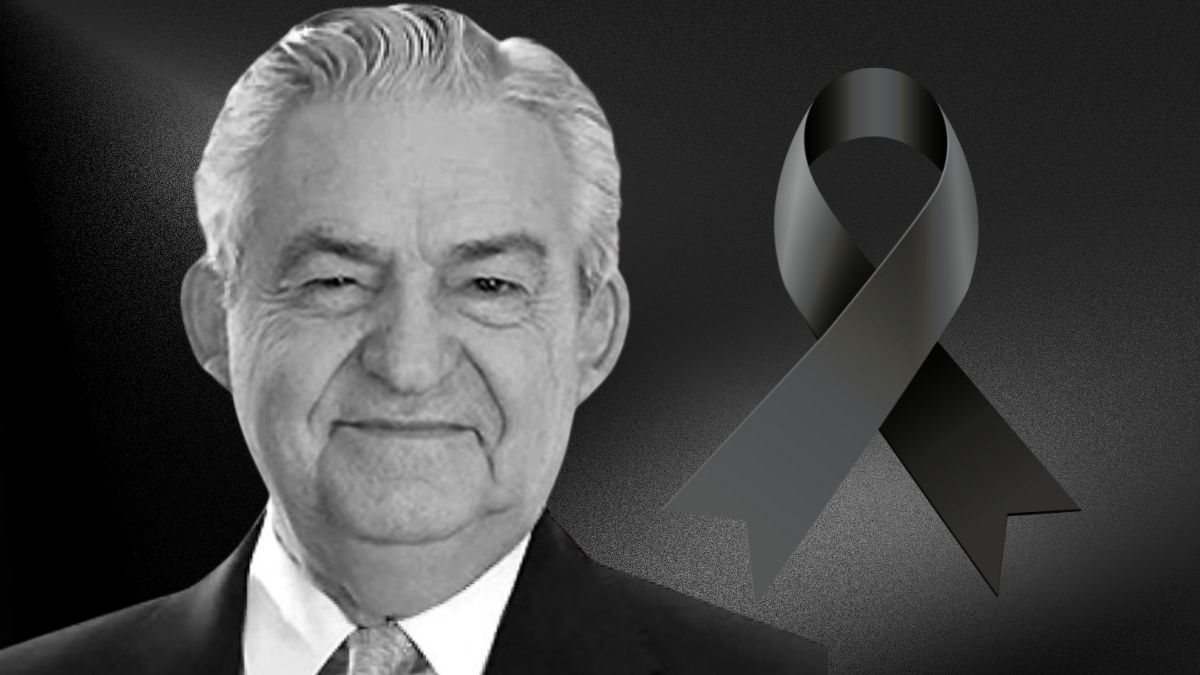
The Mexican business world is in mourning following the death of Roberto Servitje Sendra, co-founder of Grupo Bimbo, who passed away this Thursday, July 17, 2025, at the age of 97, according to reports from the Reforma newspaper. The passing of Lorenzo Servitje’s brother marks the end of a pivotal chapter in the history of the Mexican food industry.
The death of one of Bimbo’s founders coincided with the company’s announcement of a major investment in Mexico, revealed during the morning conference led by President Claudia Sheinbaum.
Who was Roberto Servitje? A Brief Biography
Roberto Servitje Sendra was born in Mexico City in 1928 into a family with deep entrepreneurial roots. He was the brother of Lorenzo Servitje, another key figure in the creation of Grupo Bimbo. His academic background was diverse and reflected an international mindset: he studied humanities at a school in Montreal, Canada, and later graduated as a public accountant from the Escuela Bancaria y Comercial in Mexico City.
At just 17 years old, Roberto Servitje joined the newly founded Bimbo company, established in 1945, taking on the role of sales supervisor. This first role marked not only the beginning of his professional career but also the start of a story that would transform the baking industry in Mexico and beyond.
He quickly made an impact within the organization: after overseeing the sales department, he created the Vehicles Department, a key division for the distribution system that would define Bimbo’s operations in its early years.
How Did Roberto Servitje Contribute to Bimbo’s Expansion in Mexico?
Roberto Servitje’s talent and strategic vision became evident in 1954 when he was given a crucial mission: to open Bimbo Occidente in Guadalajara and take charge as General Manager of the new branch. This responsibility led him to spearhead the brand’s expansion into key markets such as León, San Luis Potosí, and the Jalisco capital.
Under his leadership, in 1956 the first Bimbo factory in the region was established, a decisive step in consolidating the company’s presence beyond Mexico City. His commercial approach, combined with a deep understanding of the market and logistics operations, enabled Bimbo to rapidly position itself as a leader in the regional baking industry.
Always keen on continuous learning, in 1969 Roberto Servitje traveled to Boston to study at the prestigious Harvard University. There, he completed the Management Development Program, training that not only broadened his business perspective but also prepared him for the large-scale management challenges he would later face at Grupo Bimbo.
Upon his return to Mexico, he was appointed Deputy Director of the Organization, a position he held for nine years. During this period, the company experienced accelerated growth: by 1978, Bimbo already had 13 operational factories, reflecting its expansion and strengthening of its infrastructure nationwide.
When Did Roberto Servitje Become CEO of Grupo Bimbo?
In 1979, Roberto Servitje was appointed CEO of Grupo Bimbo, taking the helm at a pivotal moment for the company’s consolidation. A decade later, in 1990, he rose to the position of Executive President. During this time, Grupo Bimbo not only solidified its leadership in Mexico but also accelerated its growth through the creation of new operating companies. By the end of his tenure in this role, the company had expanded its structure to 50 operating enterprises, a number that reflected the organization’s strength and its diversification of products and markets.
What Was Roberto Servitje’s Role as Chairman of the Board?
In 1994, Roberto Servitje’s career reached another milestone when he was named Chairman of the Board of Grupo Bimbo, while also assuming the presidency of the Group. This stage was marked by the strengthening of the corporate vision and the preparation of a generational handover that would ensure the continuity of Bimbo’s business philosophy.
He remained in this position until 2013, concluding a nearly seven-decade-long career within the company. His retirement did not mean a complete departure, as his legacy remained deeply embedded in Bimbo’s organizational culture, which to this day is still based on values of hard work, innovation, and social responsibility.
Moreover, the corporate culture promoted by Servitje Sendra emphasized employee well-being, sustainability, and business ethics—pillars that continue to define the company’s global identity.
Descanse en paz el gran Roberto Servitje Sendra. Empresario católico, enamorado de México quiso que la Doctrina Social de la Iglesia estuviese presente en @Grupo_Bimbo un abrazo a toda su querida familia y amigos. pic.twitter.com/CW2Jf1xqft
— Fco. Javier Acero (@frayxavier) July 17, 2025










